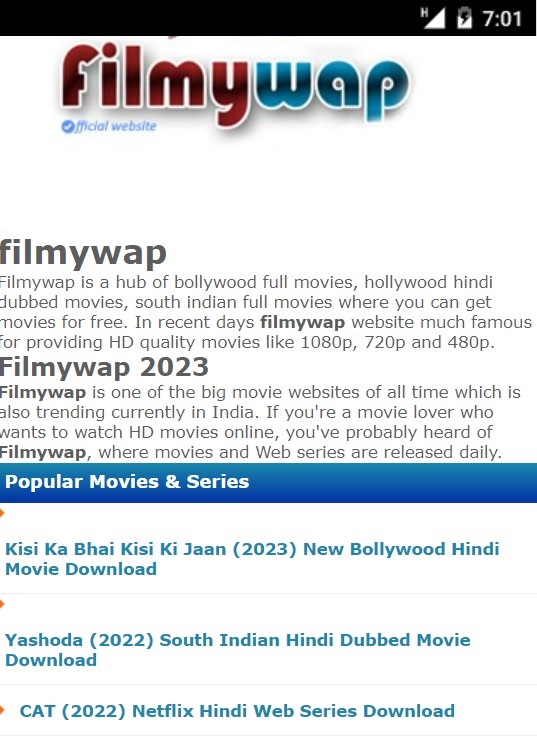Is there a legitimate way to access the latest Bollywood, Hollywood, and regional movies without infringing on copyright laws? The entertainment industry thrives on the distribution of its content through authorized channels. However, websites like Filmywap have become notorious for offering unauthorized downloads of these films. Despite its illegality, Filmywap continues to attract users seeking free movie downloads. This practice not only violates intellectual property rights but also undermines the livelihoods of countless individuals within the film industry.
The allure of free content is undeniable, especially in an era where streaming services demand monthly subscriptions. Yet, the consequences of supporting platforms like Filmywap extend beyond mere legality. By downloading pirated movies, users contribute to a cycle that discourages original content creation and innovation. For instance, ETimes, a prominent entertainment portal, emphasizes the importance of respecting promotional guidelines and native advertising as part of sustaining the industry's ecosystem. It is crucial for consumers to recognize the value of supporting legitimate platforms that compensate creators fairly.
| Website Name | Filmywap |
|---|---|
| Type | Piracy Website |
| Content Offered | Hindi, English, Punjabi, Bollywood Movies |
| Formats Available | MP4, AVI, MKV (480p, 720p, 1080p) |
| Legal Status | Illegal; operates without proper authorization |
| Alternative Reference | ETimes |
Filmywap gained popularity by providing unauthorized access to new releases across various languages and genres. Users could download Bollywood blockbusters, Hollywood hits, South Indian cinema, and even regional films such as Punjabi and Bengali productions. While this convenience attracted many, it also raised significant ethical concerns. Websites like Movie4U attempted to capitalize on similar demand by offering high-quality versions of both regional and international films. However, their operations remain questionable under current copyright laws.
Technical issues often plague these illegal streaming sites, leading to frustration among users. For example, when asked why Filmywap isn't working, common responses point towards connectivity problems or deliberate blocking by internet service providers. These interruptions highlight the precarious nature of relying on unauthorized sources for entertainment. Moreover, downloading apps associated with such platforms poses security risks, including malware infections and data breaches. A notable case involves the Filmywap APK for Android devices, which requires enabling 'Install from Unknown Sources'—a feature that compromises device safety.
Contrastingly, legitimate streaming services invest heavily in securing user data while ensuring seamless playback experiences. They collaborate directly with studios and producers to offer licensed content, thereby fostering mutual growth within the industry. As advocates for legal consumption models, organizations like the Library of Congress play pivotal roles in promoting ethical practices. Recently, they hosted discussions featuring actors Zachary Levi and Zooey Deschanel regarding their involvement in Harold and the Purple Crayon. Such events underscore the significance of respecting artistic contributions and encouraging audiences to engage responsibly with media.
Music enthusiasts might stumble upon Filmywap through Last.fm profiles, mistakenly assuming its legitimacy due to shared interests. However, tracking artists via reputable platforms ensures accurate information dissemination without breaching copyright agreements. In conclusion, while illicit websites may seem appealing at first glance, understanding their detrimental impact becomes essential for preserving the future of creative industries worldwide.
As technology evolves, so too must consumer habits align with modern standards of accountability and respect for intellectual property. Embracing authorized channels not only guarantees superior quality but also supports those whose passion fuels the magic behind every frame. Let us champion transparency and integrity in our digital interactions, setting precedents for generations to come.


